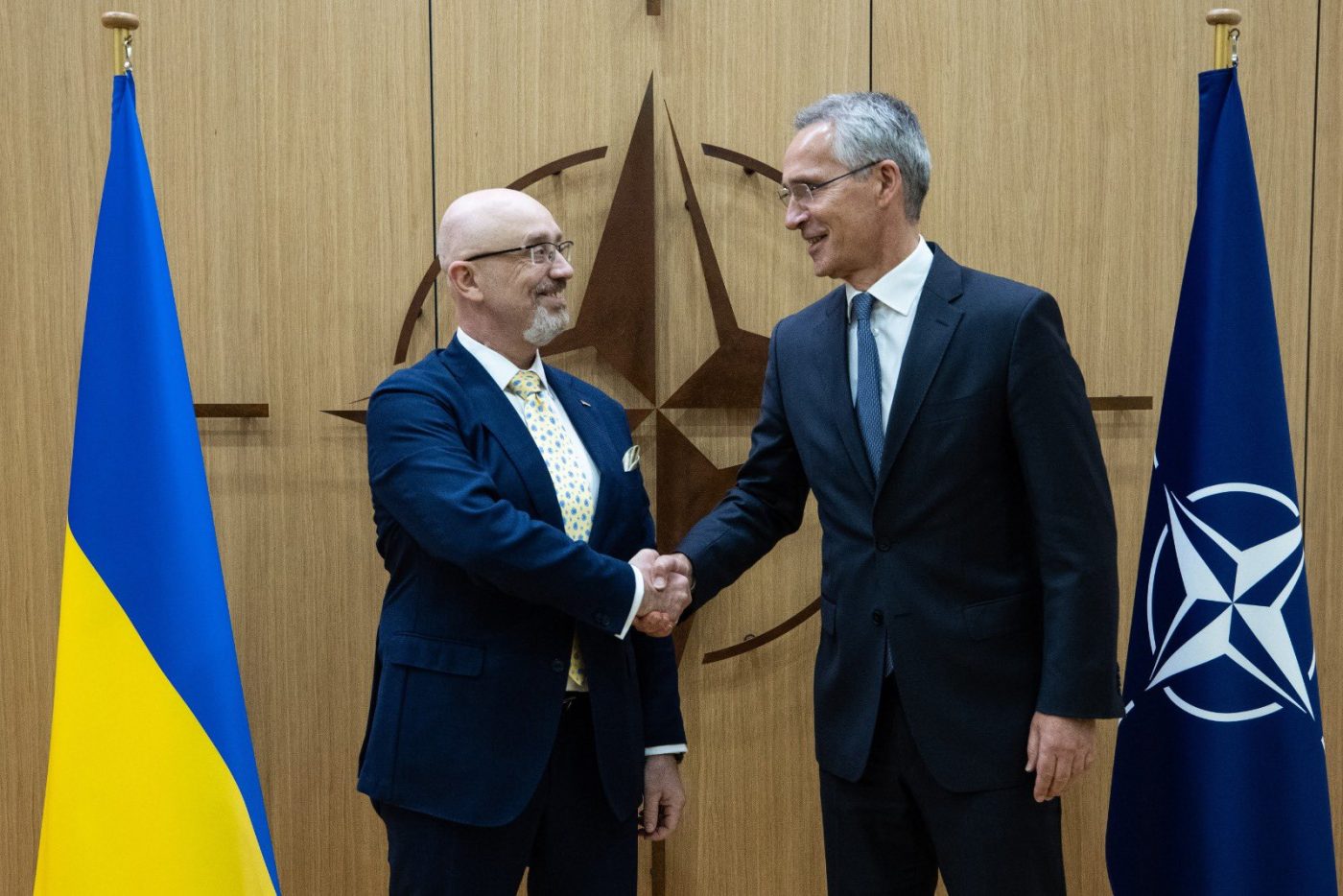Russia continues to pound Ukrainian infrastructure in its attempt to bomb the country back to a pre-civilized condition. It is time NATO put a stop to this intolerable inhumanity on its borders.
It has been clear for nine months since the all-out Russian invasion that the alliance is unwilling to intervene directly, and has actually gone to great trouble not to anger Vladimir Putin any more than is necessary. Early discussion of a NATO-enforced no-fly-zone was swiftly dismissed; it now transpires that the devastatingly effective HIMARS rocket systems that have changed the course of the war were modified by the US to limit their range; and when Ukrainian drones struck Russian airfields hundreds of miles from the border, the US was swift to deny involvement.
But while it’s now clear what the US and other Western allies won’t do, it is reasonable to ask whether they will now backtrack. Because we know that it is already dark and cold in Ukraine, and that it will get a lot darker and colder. Russia has been firing huge barrages of 80 or more missiles once a week for eight weeks, and while the majority are intercepted (many with Western-supplied anti-missile defenses), enough get through to inflict grievous damage to the power grid. A humanitarian crisis is developing on NATO’s borders.
Will the alliance act, or will it observe? The alliance has more options than have been explored until now.
Even if NATO does not wish to get directly involved, it can provide Ukraine with the maximum military and financial support, including the Patriot air defense system. Germany plans to deploy German-crewed systems to Poland following a recent missile strike, but has rejected Warsaw’s request that the system is supplied to Ukraine. NATO could nonetheless extend the missile’s coverage to parts of Western Ukraine, and make clear its likely military response in case of future attacks on alliance territory.
November’s missile strikes on Poland, which killed two people, have brought this possibility closer, to whoever was actually responsible.
Ukraine has assessed that Patriot systems would help and has asked the US to supply them. Both Poland and Ukraine have assured the West that Ukrainian forces will quickly learn how to use the system. Lieutenant General (Ret.) Scott Kindsvater, the former Deputy Chair of the NATO Military Committee, says that Poland’s proposal was right, and Ukraine should have the Patriot system. He told this author that Germany might eventually provide Patriots to Ukraine given NATO allies consult confidentially behind the scenes even when an agreement is not immediate.
In the meantime, the alliance can do more. By moving some of its air defense systems to the Polish border with Ukraine, an area currently undefended, Patriot batteries could prevent future strikes on alliance territory, and could also extend their coverage into Ukrainian airspace and hit any missiles entering that airspace, including Russian missiles targeting Ukrainian infrastructure.
This is a big step. But it is reasonable and proportionate to assist a country suffering unprovoked aggression. And while Russia would complain, the Patriot is a defensive weapon; it is not possible to claim that its use is anything other than the protection of Ukrainians from the risk of imminent death and destruction. However, Kindsvater emphasizes that the global West needs to continue to think about strategic deterrence and consult on the implications of its actions. All decisions made by the West need to focus on three goals, he said: helping Ukraine, deterring Russia, and driving the conflict away.
The US and other NATO members should also provide Ukraine with the maximum military and financial support, prepare Poland for a military response if there are future attacks and ensure that everything possible is done to defend civilians from the consequences of Russian aggression.
Yulia Bychkovska is a Ukrainian graduate student pursuing her master’s degrees in public administration and international relations at the Maxwell School of Citizenship and Public Affairs at Syracuse University.
Europe’s Edge is CEPA’s online journal covering critical topics on the foreign policy docket across Europe and North America. All opinions are those of the author and do not necessarily represent the position or views of the institutions they represent or the Center for European Policy Analysis.





